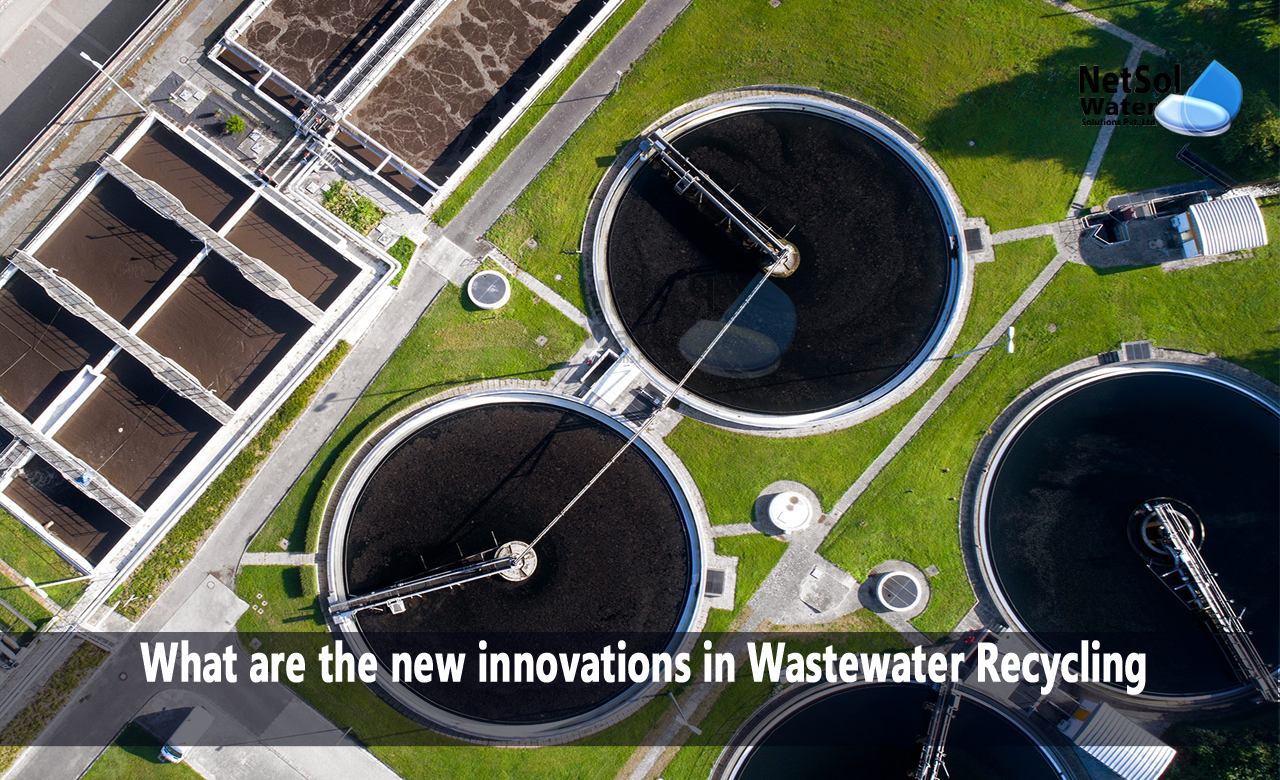What are the new innovations in Wastewater Recycling?
Water reclamation, sometimes referred to as wastewater recycling, is a crucial component of contemporary environmental sustainability. Creative approaches to wastewater recycling are more important than ever as the globe struggles with growing water constraint and rising pollution. This blog will examine the most recent developments and technology in wastewater recycling and emphasize how crucial they are to solving these worldwide issues.
Membrane Bioreactors (MBRs)
Membrane bioreactors are state-of-the-art devices that integrate membrane filtration with biological therapy. By removing particles and germs from the water, MBRs improve the effectiveness of wastewater treatment and provide high-quality effluent. This technology works well for both large- and small-scale applications, especially when it comes to treating industrial and municipal wastewater.
MBRs have a number of benefits, such as better pollution removal, reduced environmental impact, and enhanced water quality. By using them, the demand for freshwater resources can be greatly decreased, and the environmental impact of wastewater discharge can be minimized.
Forward Osmosis (FO)
The promise of forward osmosis as a cutting-edge technique for treating wastewater has drawn interest. Forward osmosis draws water through a semi-permeable membrane using a lower energy manner than standard reverse osmosis, which demands a large energy input. This method works particularly well for purifying seawater, industrial effluent, and brackish water.
FO presents a viable alternative in regions with limited energy supplies due to its cost-effectiveness and lower energy intensity. Additionally, it can be used to concentrate wastewater in order to recover resources, such rich minerals.
Electrochemical Advanced Oxidation Processes (EAOPs)
A group of innovative methods known as Electrochemical Advanced Oxidation Processes employ electricity to produce oxidants for the purpose of treating water. Numerous pollutants, including pathogens and organic pollutants, can be efficiently broken down by these processes. Because of its adaptability, EAOPs can be used in decentralised as well as centralised wastewater treatment systems.
The electro-Fenton process, which use electricity to produce extremely reactive hydroxyl radicals, is one well-known EAOP. These radicals remove impurities from water and decompose organic materials. EAOPs can significantly enhance water quality and are a greener alternative to traditional chemical treatments.
Nutrient Recovery Technologies
Wastewater has the potential to be both a useful resource and a problem. The goal of nutrient recovery technologies is to recover useful nutrients from wastewater, including nitrogen and phosphorus, and turn them into products that may be used again, like fertilisers. This invention supports sustainable agricultural methods in addition to lessening the negative effects of nutrient contamination on the environment.
The process of struvite crystallisation, which yields high-purity struvite (magnesium ammonium phosphate) from wastewater, is a potentially effective nutrient recovery technique. In order to lessen the demand for synthetic fertilisers and reduce nutrient runoff into water bodies, this recovered struvite can be utilised as a slow-release fertiliser.
Decentralized Wastewater Treatment Systems
Particularly in rural and isolated regions, decentralised wastewater treatment systems are becoming more and more popular. These systems offer on-site or small-scale treatment solutions. Examples of these systems are built wetlands, septic tanks, and anaerobic digesters. They are appropriate for locations with restricted access to these resources because they lessen the requirement for large-scale infrastructure and centralised treatment plants.
Decentralised systems reduce the environmental impact of long-distance wastewater transportation by allowing for local water recycling in addition to energy savings. They advocate for a wastewater management strategy that is more effective and sustainable.
Conclusion:
Water shortage, pollution reduction, and a sustainable future all depend on innovations in wastewater recycling. These technologies, which range from membrane bioreactors to forward osmosis and sophisticated oxidation processes, provide efficient and eco-friendly wastewater treatment options. Furthermore, decentralised systems and nutrient recovery technologies improve wastewater management's sustainability even further.
The implementation of these cutting-edge wastewater recycling technologies is crucial for protecting our ecosystem and guaranteeing that future generations will have access to clean water as the world's population continues to rise and water supplies become more limited. We can create a more robust and sustainable water infrastructure that benefits the environment and society at large by adopting these advances.
Netsol Water is Greater Noida-based leading water & wastewater treatment plant manufacturer. We are industry's most demanding company based on client review and work quality. We are known as best commercial RO plant manufacturers, industrial RO plant manufacturer, sewage treatment plant manufacturer, Water Softener Plant Manufacturers and effluent treatment plant manufacturers. Apart from this 24x7 customer support is our USP. Call on +91-9650608473, or write us at enquiry@netsolwater.com for any support, inquiry or product-purchase related query.



